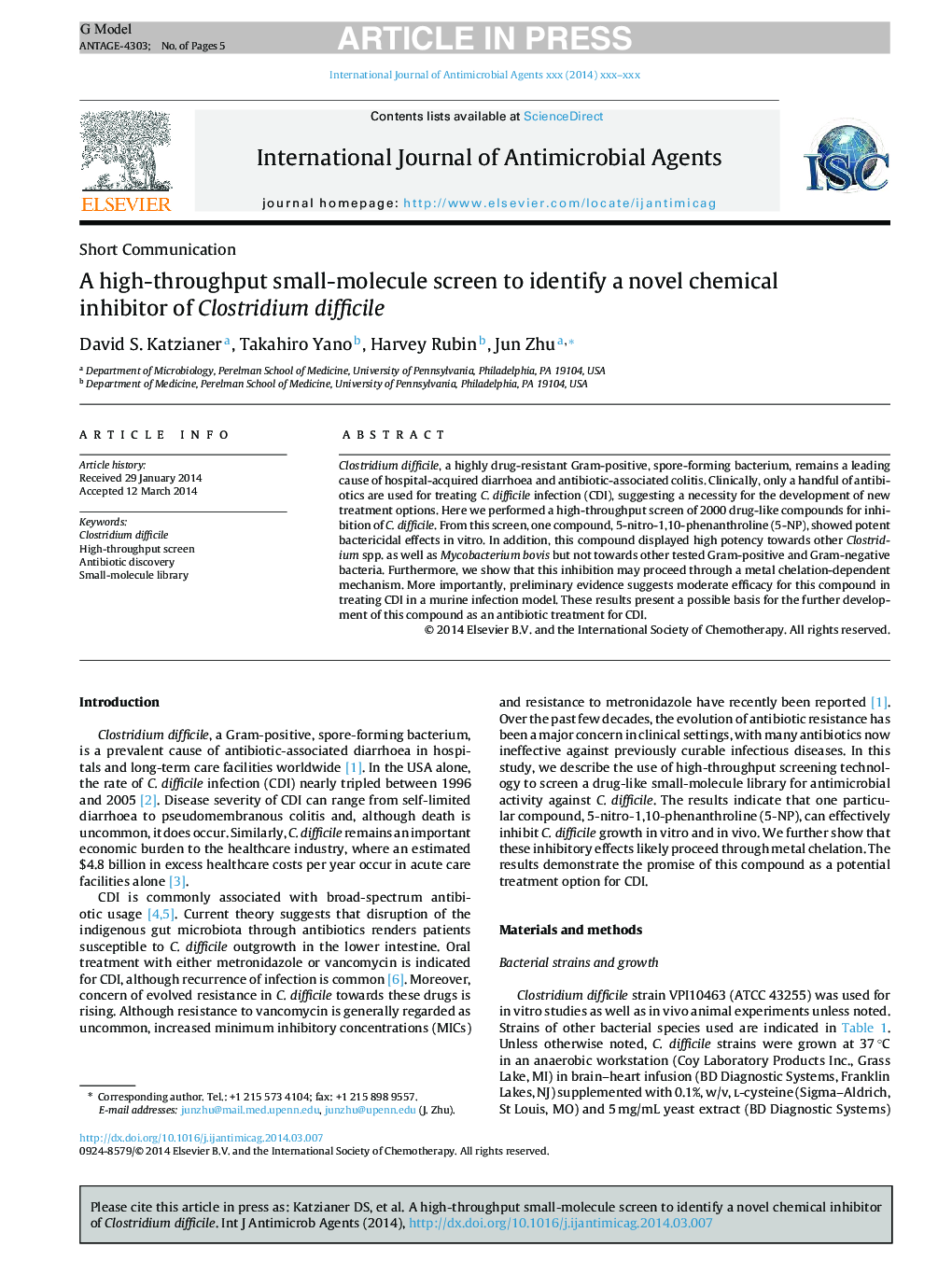| Article ID | Journal | Published Year | Pages | File Type |
|---|---|---|---|---|
| 6117752 | International Journal of Antimicrobial Agents | 2014 | 5 Pages |
Abstract
Clostridium difficile, a highly drug-resistant Gram-positive, spore-forming bacterium, remains a leading cause of hospital-acquired diarrhoea and antibiotic-associated colitis. Clinically, only a handful of antibiotics are used for treating C. difficile infection (CDI), suggesting a necessity for the development of new treatment options. Here we performed a high-throughput screen of 2000 drug-like compounds for inhibition of C. difficile. From this screen, one compound, 5-nitro-1,10-phenanthroline (5-NP), showed potent bactericidal effects in vitro. In addition, this compound displayed high potency towards other Clostridium spp. as well as Mycobacterium bovis but not towards other tested Gram-positive and Gram-negative bacteria. Furthermore, we show that this inhibition may proceed through a metal chelation-dependent mechanism. More importantly, preliminary evidence suggests moderate efficacy for this compound in treating CDI in a murine infection model. These results present a possible basis for the further development of this compound as an antibiotic treatment for CDI.
Related Topics
Life Sciences
Immunology and Microbiology
Applied Microbiology and Biotechnology
Authors
David S. Katzianer, Takahiro Yano, Harvey Rubin, Jun Zhu,
